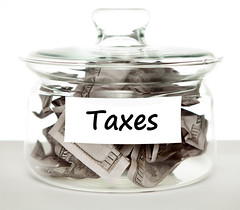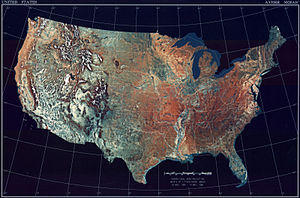ReutersBackdoor taxes to hit middle class The Obama administration's plan to cut more than $1 trillion from the deficit over the next decade relies heavily on so-called backdoor tax increases that will result in a bigger tax bill for middle-class families.
In the 2010 budget tabled by President Barack Obama on Monday, the White House wants to let billions of dollars in tax breaks expire by the end of the year -- effectively a tax hike by stealth.
While the administration is focusing its proposal on eliminating tax breaks for individuals who earn $250,000 a year or more, middle-class families will face a slew of these backdoor increases.
The targeted tax provisions were enacted under the Bush administration's Economic Growth and Tax Relief Reconciliation Act of 2001. Among other things, the law lowered individual tax rates, slashed taxes on capital gains and dividends, and steadily scaled back the estate tax to zero in 2010.
If the provisions are allowed to expire on December 31, the top-tier personal income tax rate will rise to 39.6 percent from 35 percent. But lower-income families will pay more as well: the 25 percent tax bracket will revert back to 28 percent; the 28 percent bracket will increase to 31 percent; and the 33 percent bracket will increase to 36 percent. The special 10 percent bracket is eliminated.
Investors will pay more on their earnings next year as well, with the tax on dividends jumping to 39.6 percent from 15 percent and the capital-gains tax increasing to 20 percent from 15 percent. The estate tax is eliminated this year, but it will return in 2011 -- though there has been talk about reinstating the death tax sooner.
Millions of middle-class households already may be facing higher taxes in 2010 because Congress has failed to extend tax breaks that expired on January 1, most notably a "patch" that limited the impact of the alternative minimum tax. The AMT, initially designed to prevent the very rich from avoiding income taxes, was never indexed for inflation. Now the tax is affecting millions of middle-income households, but lawmakers have been reluctant to repeal it because it has become a key source of revenue.
Without annual legislation to renew the patch this year, the AMT could affect an estimated 25 million taxpayers with incomes as low as $33,750 (or $45,000 for joint filers). Even if the patch is extended to last year's levels, the tax will hit American families that can hardly be considered wealthy -- the AMT exemption for 2009 was $46,700 for singles and $70,950 for married couples filing jointly.
Middle-class families also will find fewer tax breaks available to them in 2010 if other popular tax provisions are allowed to expire. Among them:
* Taxpayers who itemize will lose the option to deduct state sales-tax payments instead of state and local income taxes;
* The $250 teacher tax credit for classroom supplies;
* The tax deduction for up to $4,000 of college tuition and expenses;
* Individuals who don't itemize will no longer be able to increase their standard deduction by up to $1,000 for property taxes paid;
* The first $2,400 of unemployment benefits are taxable, in 2009 that amount was tax-free.





